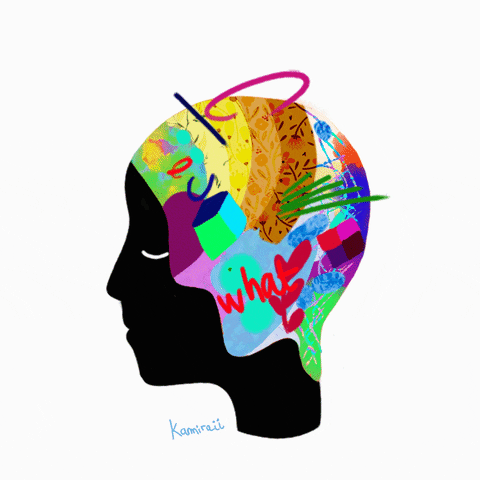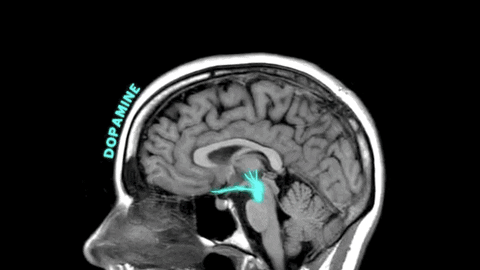Systemic enhancement of serotonin signaling reverses social deficits in multiple mouse models for ASD; Walsh et al. 2021
Journal Club #9
Few things before we begin:
I appreciate each and every one of you.
Follow me on Twitter @TyQuig and Instagram @thetab_psychedelicscience
Part of this newsletter is 24/7 office hours. If you have a question about psychedelic science, send it my way.
3, 2, 1, lift off 🚀
Systemic enhancement of serotonin signaling reverses social deficits in multiple mouse models for ASD
Why They Did It
Diagnoses of autism spectrum disorder (ASD), a condition that impacts the development of the central nervous system, are increasing. 👆
ASD can manifest in many different ways. This is due to a complex interplay between an individuals genetics and their environment during development.
Although ASD is a spectrum, there are common behavioral tendencies among individuals with ASD, such as difficulties with social interaction and communication.
This suggests shared neural mechanisms underlying distinct forms of ASD. 🧠
Early ASD researchers thought impairments in 5-HT (serotonin) pathways may underlie some symptoms of ASD. This idea was later supported by neuroimaging and postmortem studies of children and adults with ASD.

Over the past 15 years, the authors of this study have shown that the release of serotonin in a region of the brain called the nucleus accumbens (NAc) is important for social reward and sociability in mice.
The NAc is involved in our main reward pathway. This is a network in our brain that, when stimulated, makes us want to do the thing that stimulated it, again. Drugs that trigger our reward system are more likely to be addictive. Social reward is thus actions we take socially that are generally positive and doing/experiencing them makes us want to do them again, i.e. smiling.
This group has also shown that triggering serotonin release in a mouse model of autism can reverse their social deficits, and that MDMA enhances sociability by releasing serotonin in the NAc. The latter effect requires activation of the 5-HT1b receptor.
Sounds like great news, however, MDMA can be toxic in frequent doses and has abuse potential. 🤔
If we can target specific 5-HT receptor subtypes rather than dumping a bunch serotonin into our brains, we might be able to rectify some social challenges faced by individuals with ASD, while minimizing harmful side effects.
The hypothesis of this study is that enhancing 5-HT signaling by specifically targeting the 5-HT1b can ameliorate the social deficits present in ASD mouse models.
What They Did
They obtained and bred three different genetically modified lines of mice. Each genetic line has a different DNA alteration associated with ASD in humans. Using multiple lines allows them to study how generally their treatment applies to the wide span of underlying causes of ASD. 🐁
ASD can also be triggered by the environment. So, they created a fourth ASD mouse model by treating pregnant mice with valproic acid, a compound known to induce ASD-like symptoms in offspring. They used the offspring in their study. (Morbid, yes 😥)
Multiple mice from each ASD mouse model were run through a series of behavioral tests to confirm that they are less social than non-ASD mice.

They administered either MDMA or CP-94,253 to mice from each ASD mouse model and tested their social behavior via the same tests as above.
They further tested CP-94,253 to see if it improved sociability in two additional genetic ASD lines. They also studied at what dose CP-94,253 works best, and if it has abuse potential.
They analyzed their behavioral data using a principal component analysis (PCA). A PCA is a way to represent data with many dimensions. In this case, each behavioral measurement for each genetic line is a single dimension. This numbers in the hundreds for this particular study. By reducing these dimensions to two, they could easily depict how the behavior profile of the ASD mice differs from control mice, and how the behavior profile of ASD mice changes after they receive MDMA or CP-94,253.
What They Found
To begin, each of the mouse models they used in this study displayed social deficits in the behavioral tests they ran. Basically, ASD mice spent less time interacting with other mice compared to control.

MDMA increased sociability in the four ASD mouse models tested (3 genetic, 1 environmental). 👆
CP-94,253 increased sociability in all ASD mouse models tested, including the two additional genetic ASD lines they established. 👆
They tested 1, 3, 10, and 30 mg/kg CP-94,253 doses on one ASD model and wild-type mice. They found that all doses improved sociability in ASD mice, and only 30 mg/kg altered the behavior of control mice. 👍
They found that CP-94,253 did not exhibit abuse potential in either the ASD model or the wild-type mice.👍
Their PCA revealed three things:
The behavioral profiles of each ASD mouse model were the same (reduced sociability).
The ASD mouse behavioral profile was different than the control mice (reduced sociability vs. not).
The behavioral profile of ASD mice administered CP-94,523 is indistinguishable from control mice (CP-94,523 increased sociability).

My Take
Are we honing in on puppet-master-like control of the mind? Like the pull of a string, the activation of a specific receptor subtype seems to breathe life into a piece of mouse behavior that we humans hold dear to our own identities: sociability. This piece of humanity does not come easy to everyone. Social challenges almost always impact those 1 in 54 children who are diagnosed with ASD.
This study seems to suggest that maybe there is a string we could pull to improve the quality of social life for those who experience these challenges, with minimal side effects. If there is one thread that runs through the psychoactive compounds we are here as a community to learn about, is that they can help us feel less alone. Everyone deserves that option. 🧵
I appreciate your feedback on how I did breaking down this science. Let me know in the comments:
Think more people should know about psychedelic science? Share my newsletter with your people, because your people are my people ✌🏽
📃 Here’s the paper:
Walsh, J. J. et al. Systemic enhancement of serotonin signaling reverses social deficits in multiple mouse models for ASD. Neuropsychopharmacology (2021).
Tunes for your next flow state
🔥 Patrice Bäumel - Melodic House & Techno Sunset Session
🍯 The Midnight - Endless Summer - Full Album
🤟🏽 Have a swell week friends 👽





